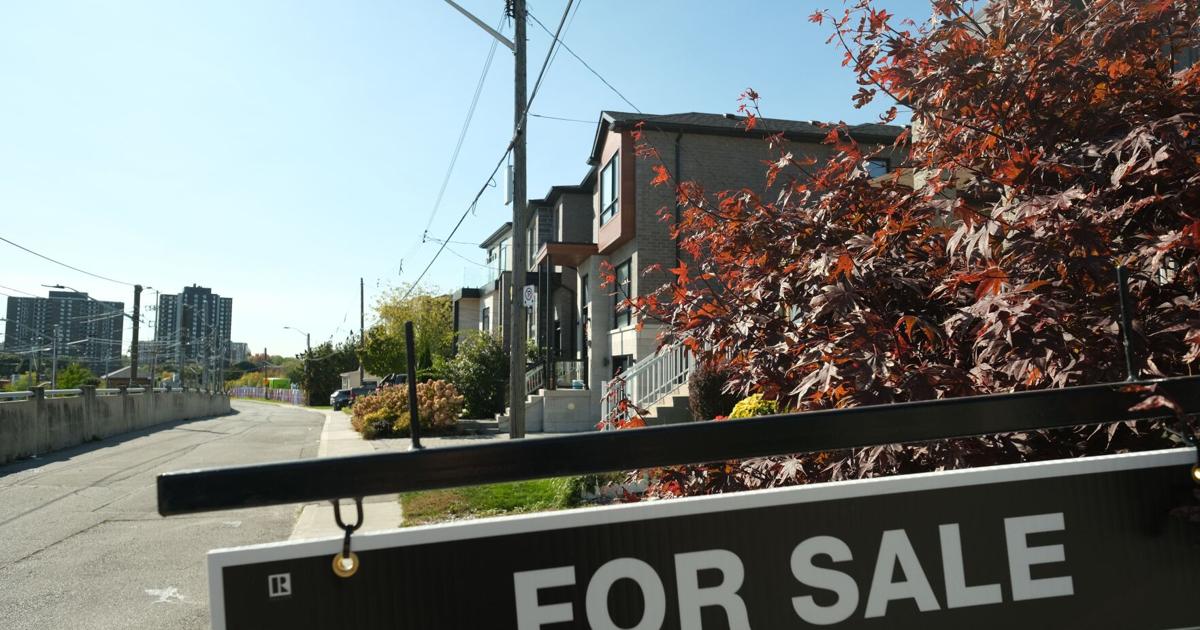While variable mortgage rates are expected to fall with the Bank of Canada’s announcement Wednesday, fixed-rate mortgages could be reaching their lowest point in 2025, experts say.
On Wednesday morning, the Bank of Canada announced a 25-basis-point rate-cut, bringing the overnight rate to 2.25 per cent.
Five-year fixed mortgage rates have dropped to “probably the lowest point this year,” falling even below the “super low” rates seen in April, said mortgage broker Ron Butler.
According to Ratehub.ca, the lowest five-year fixed term in Canada is 3.79 per cent.
This dip could be “freeing up cash” for families or allowing buyers to “acquire a bigger home or a more expensive home than they would have otherwise for the same (monthly) payments,” said Phil Soper, president and CEO of Royal LePage.
Soper explained that the bond market, not Bank of Canada rate cuts, is the biggest driver of fixed rates.
Bond yields could be falling due to rising unemployment and a larger federal deficit in the United States, he said, “so we’re seeing the weaker economy, paradoxically, is allowing more people into the real estate market.”
Tyler McLay, president of Tyler McLay Realty Group, noted a bond is a government-back security, and generally speaking, if there is confidence that the economy is going to grow, the bond yield will be higher, while a lower bond-yield reflects lower confidence in the economy.
However, there hasn’t been much volatility in the bond market or fixed-rate mortgage market this calendar year, McLay said, adding that fixed rates at the end of last year were around 4.4 to 4.6 per cent on a five-year amortization.
Different banks may offer slightly varying rates, and one could have a promotional rate that could change a week later, he said.
“A mortgage is a product,” McLay said.
Soper added lenders in the “non-regulated mortgage market,” such as independent mortgage companies, have lower rates so they can compete with banks.
Should homeowners take a fixed or variable mortgage?
Whether a homeowner should take a fixed or variable mortgage depends on their personal finances and their tolerance for stress, experts say.
Soper said he usually recommends people go with a variable mortgage “if they can handle the stress of not knowing what their payments are going to be every month.”
He explained that longer-term fixed mortgages tend to be higher because they essentially have a built-in “insurance premium,” as the bank takes the risk on a longer-term loan at a set rate.
“History has shown that shorter-term variable mortgages cost less,” Soper said. “Generally, over the long-term, variable rates win.”
That being said, five-year fixed mortgages have historically been the most popular mortgage product in Canada, he said, because buyers want the certainty of knowing what their monthly mortgage payments will be.
For instance, someone who took out a variable rate in 2021 saw interest rates spike “when the post-pandemic inflation wave came through,” and they would have felt like they made a bad call.
“But a couple years later, it’s coming back to normal,” Soper said. “And periods like that are pretty rare over the decades.”
Butler, for his part, said “variable is having its moment,” as those rates are falling.
McLay added that the “peace of mind” that comes with a fixed rate “is worth something,” and it may be better for someone who is salaried, particularly with consumer confidence down.
“Fixed is a guarantee. You know exactly what you’re paying for a four- or five-year term,” he said. “So (for) fixed-income individuals, it’s a lot more predictable, and 99 per cent of the time, makes more sense.”



